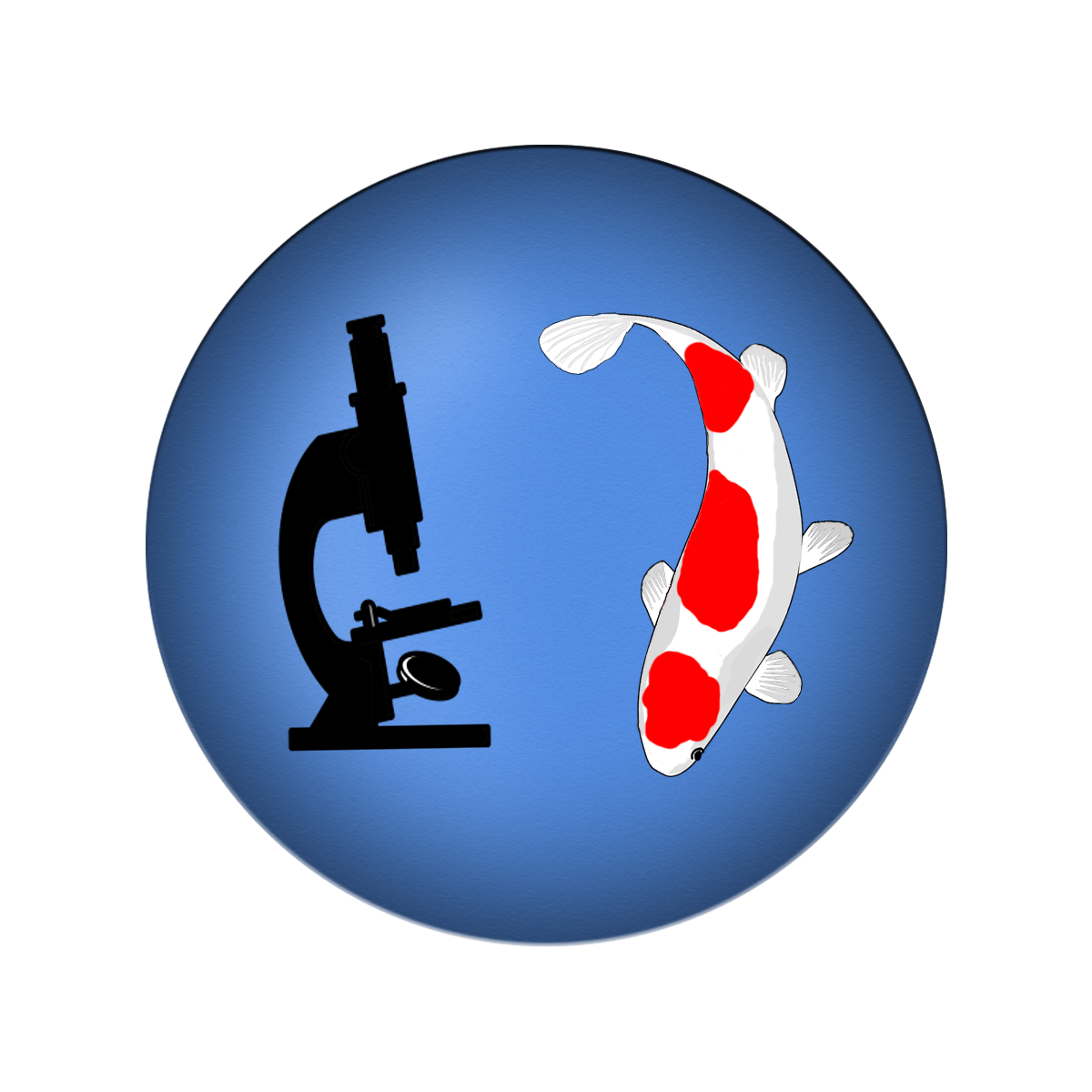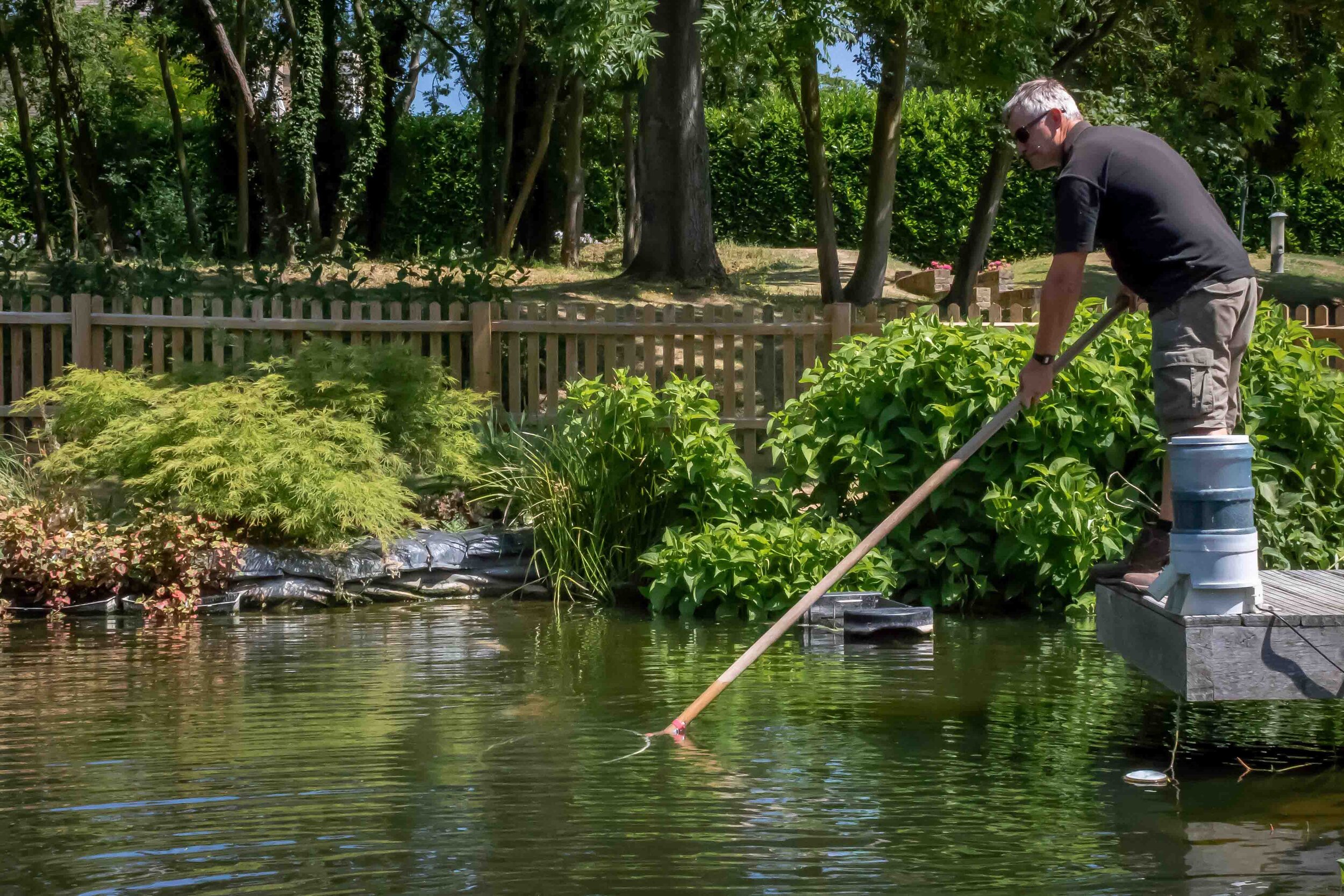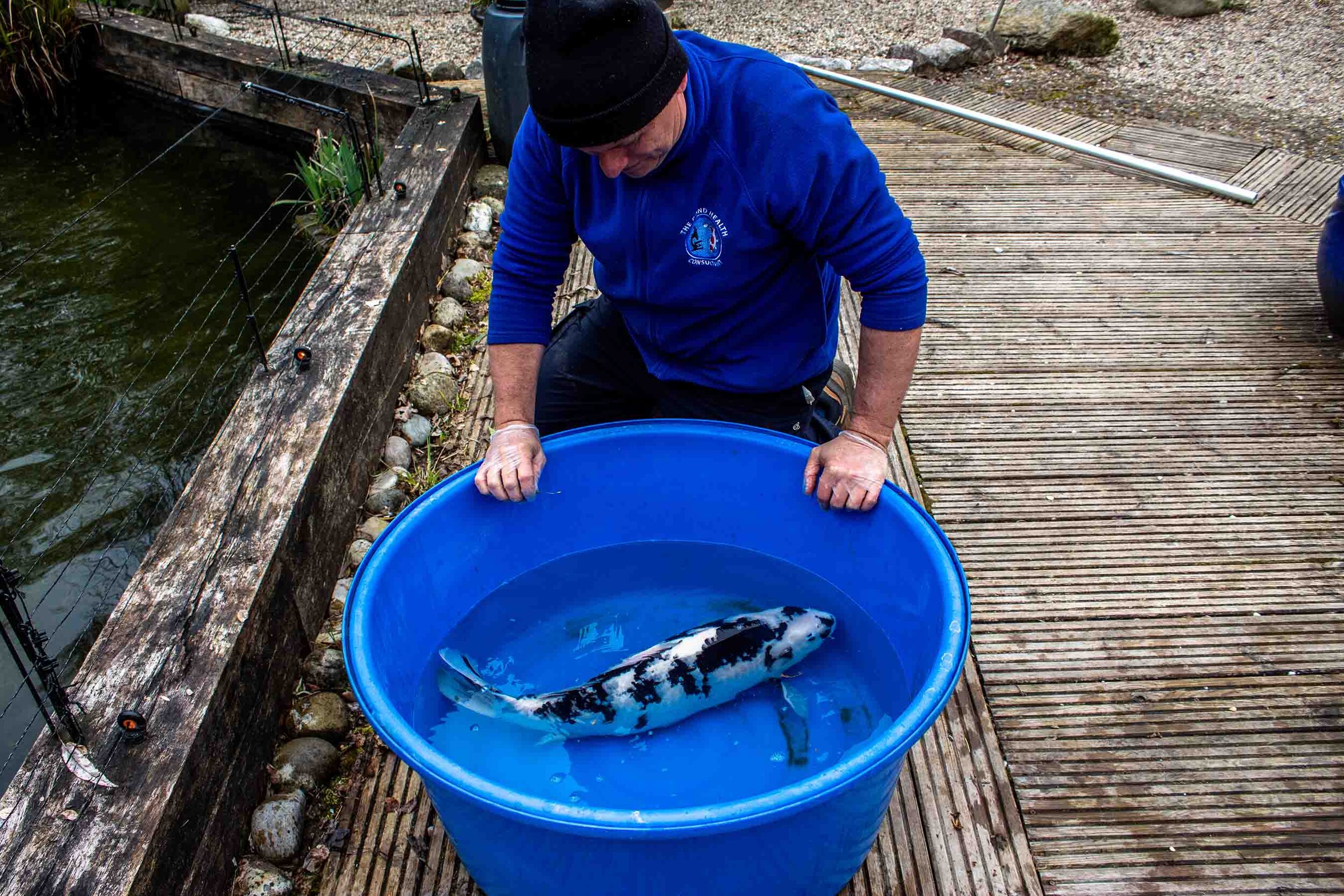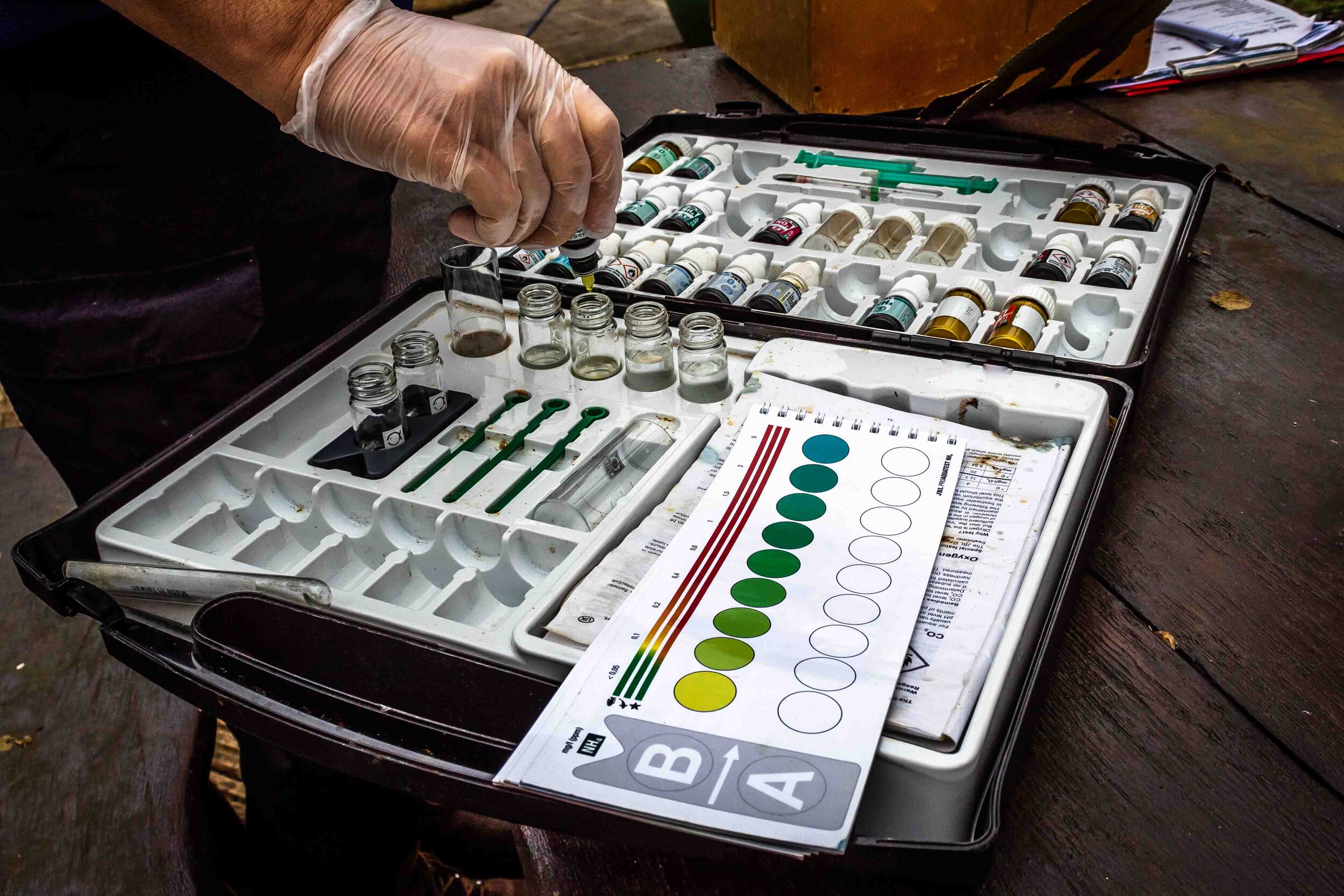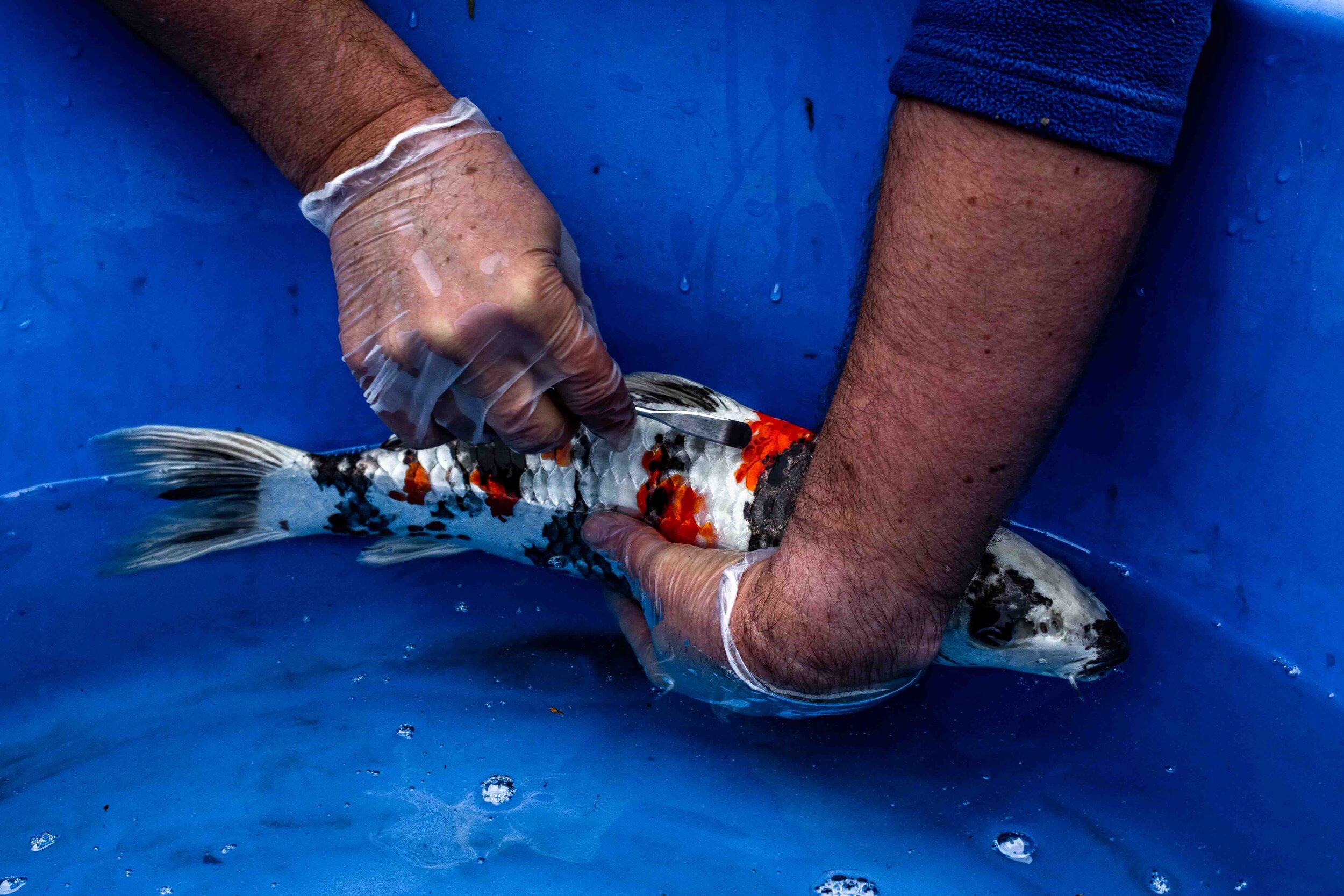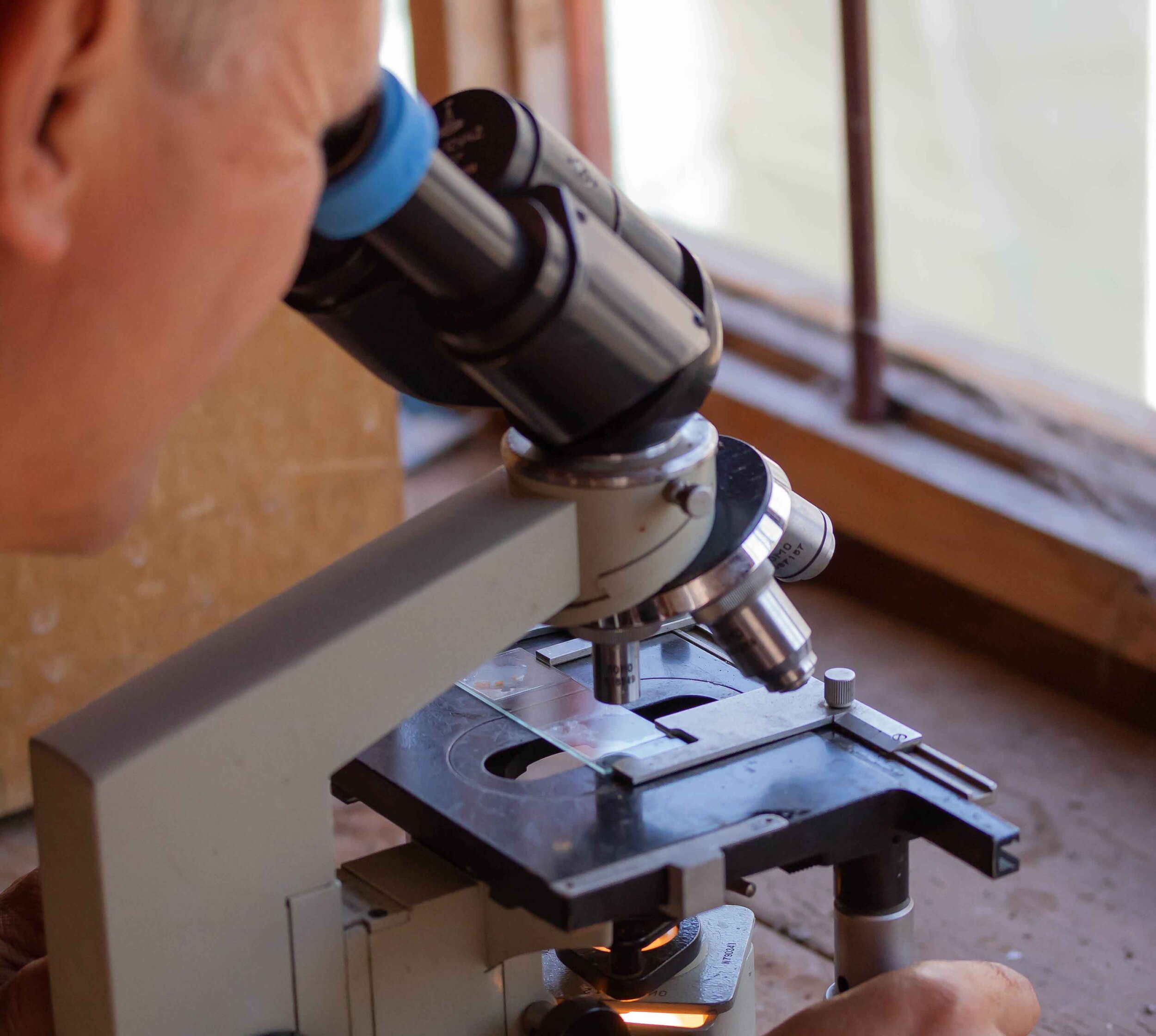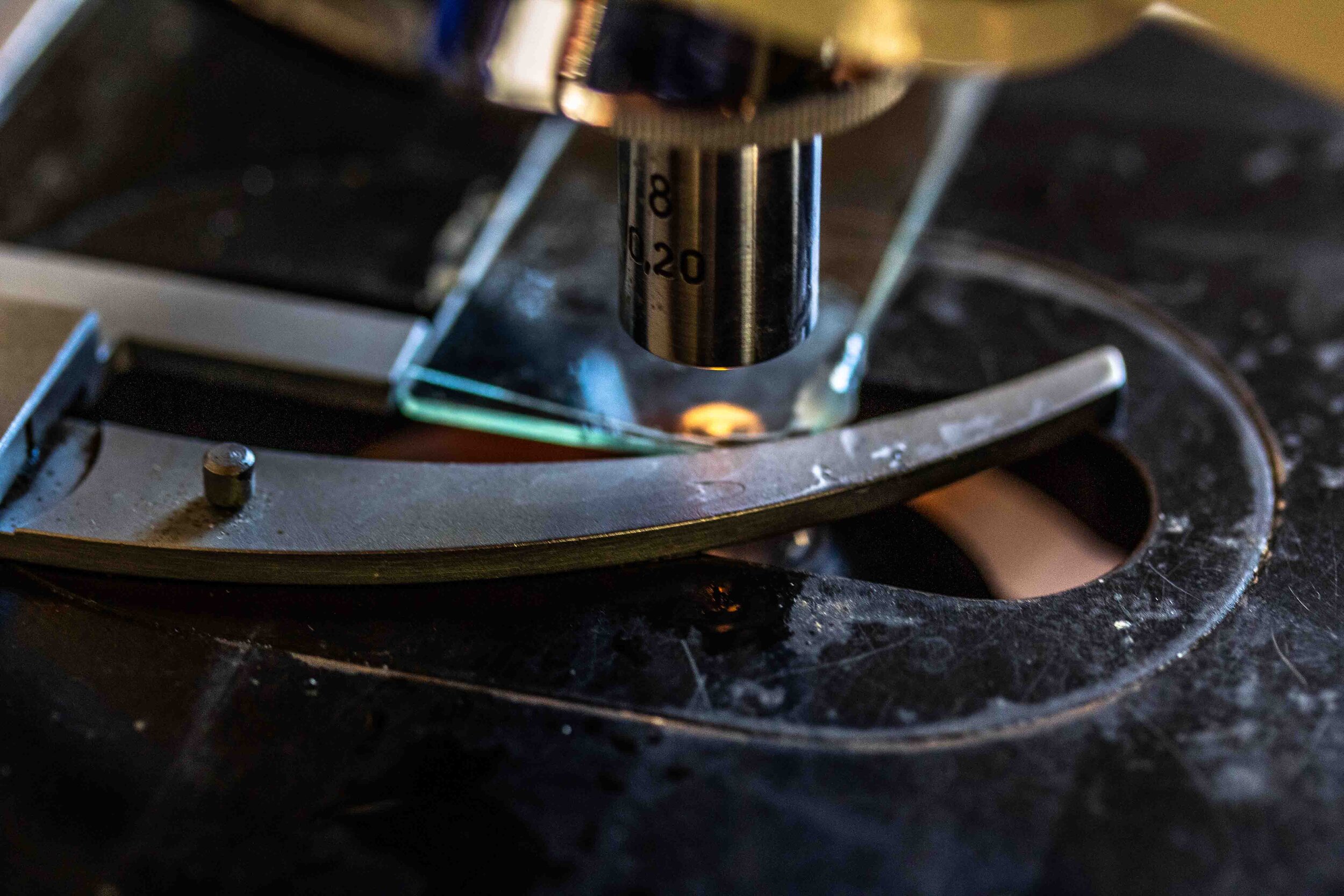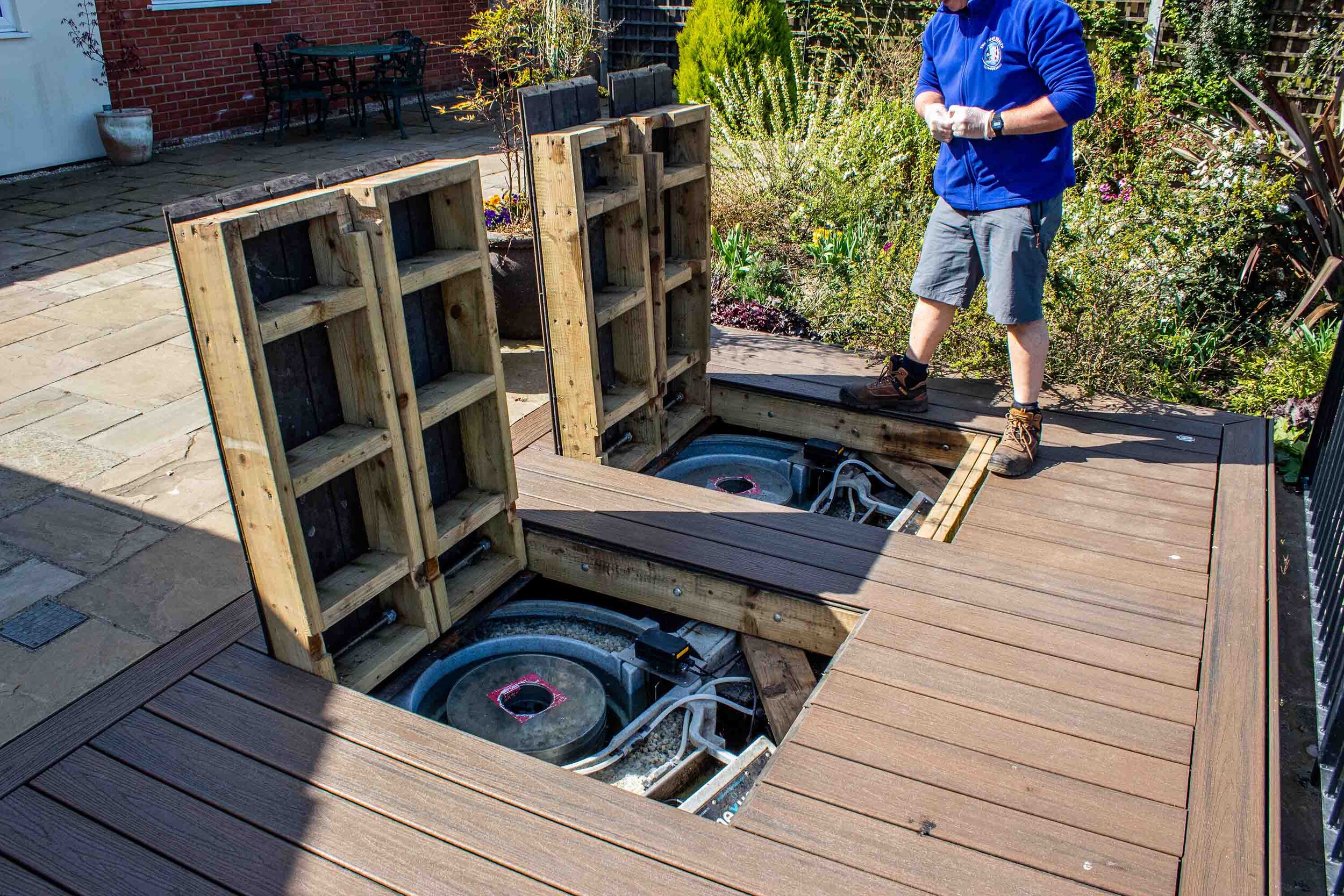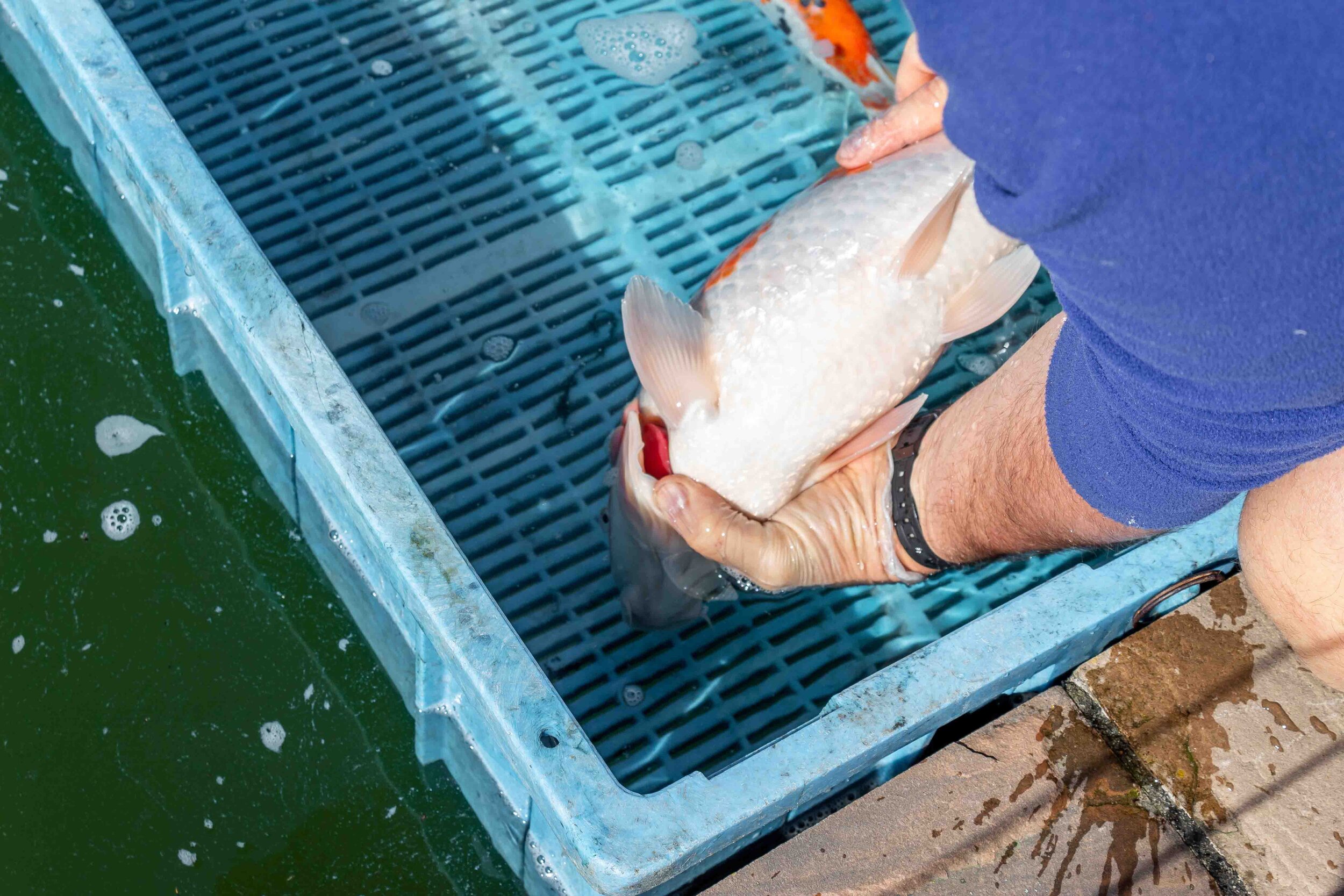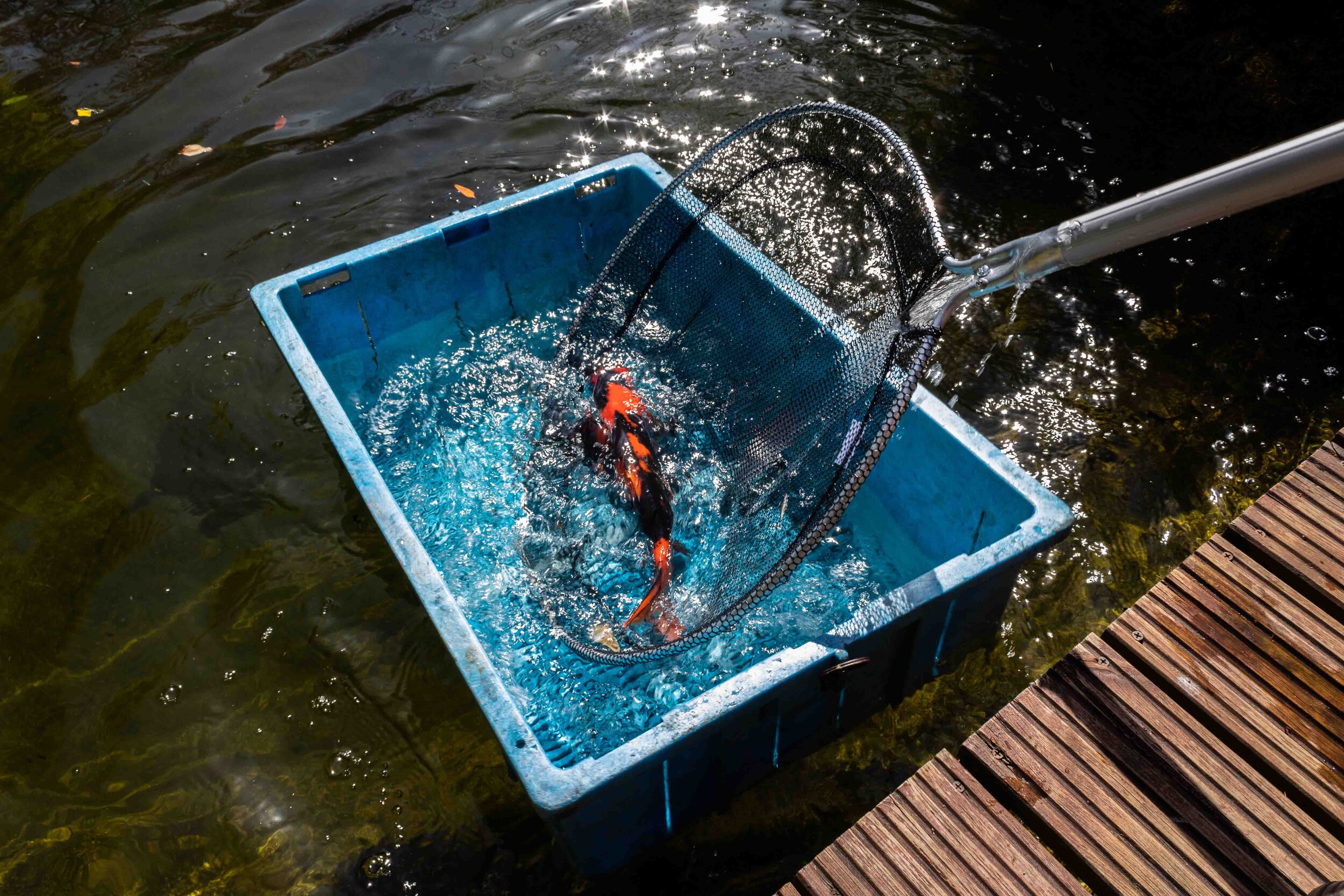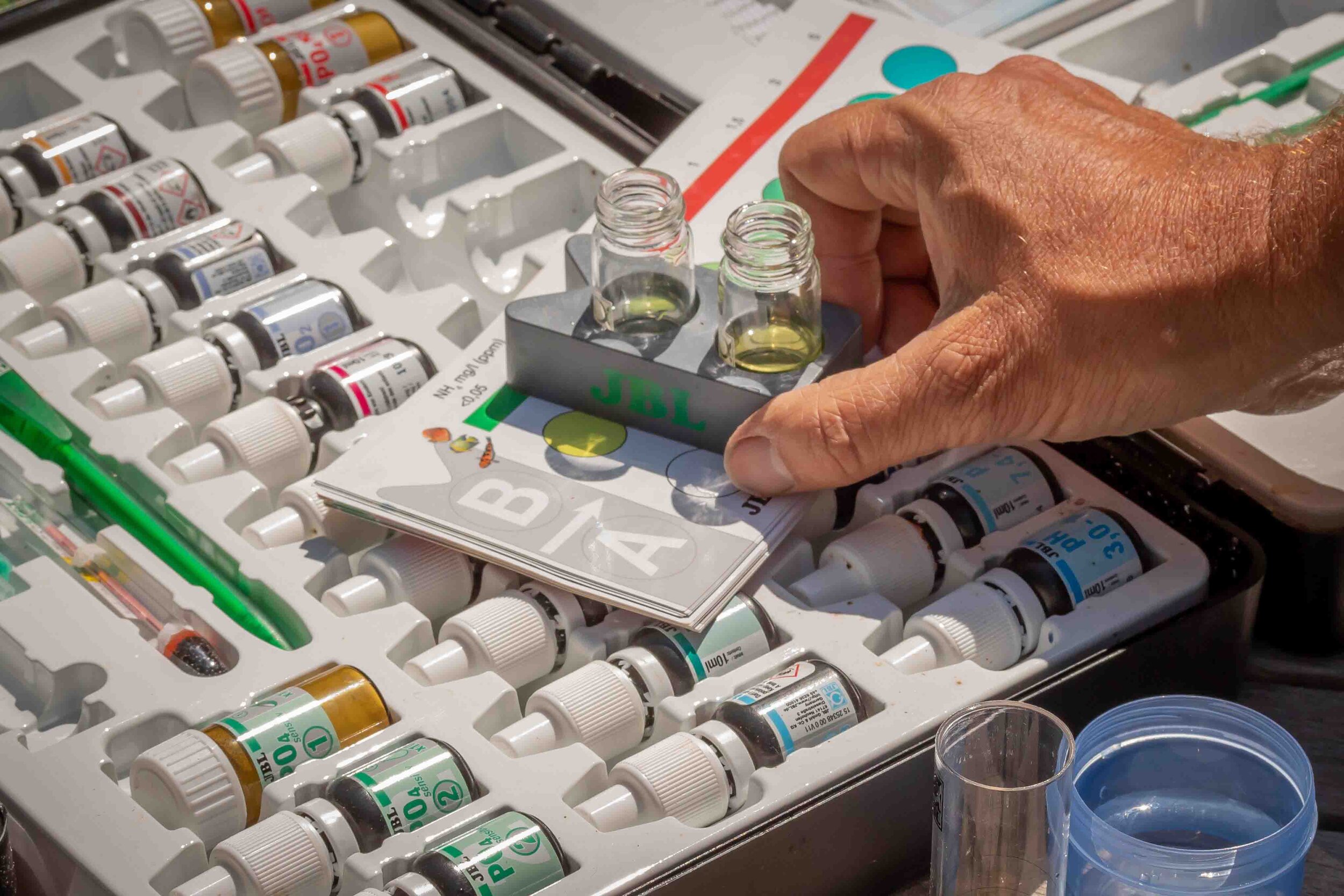Standard call
A standard call consists of:
Onsite water testing for pH levels, ammonia, nitrite, nitrate, oxygen, KH and GH, and phosphates.
Observation of fish behaviour
Microscope analysis for external parasites (up to six fish)
Recommending treatment regimes
After treatment, a follow-up visit may be required.
A standard consultation fee is typically £125 (excluding medications) in the city of Cambridge (CB2). Outside of the city, please contact Andrew for a quotation please contact Andrew for a quotation.
Additional services include advising on:
Filtration needs
Planting schemes
Improving aeration and circulation
Quarantine regimes for the introduction of new fish
Recommending treatment regimes
Emergency Calls and out-of-hours calls will incur additional charges, please inquire below
Frequently asked questions:
In what area do you operate?
Andrew operates within the city of Cambridge at a standard price but does have many clients further afield. Additional charges apply; please contact Andrew for a quote.
What kind of problems do you solve?
Andrew can advise on the most common problems related to the health of your pond and fish.
How does water quality affect fish health?
Poor water quality can quickly cause deterioration in fish health. The fish can be poisoned by the water, which in the short term is likely to make them more susceptible to fungal, parasite, and bacterial infections, but can ultimately lead to their death. There can be many reasons why the water quality is not good enough, a lack of filtration, poorly maintained filters, overstocking, overfeeding, new installations, seasonal fluctuations, and insufficient water changes. Rectifying the problem may be as simple as improving the cleaning regime but could also involve upgrading the existing filters if inadequate.
Can you identify parasites?
Yes, Andrew can identify all common external parasites of pond fish; a few are easily visible with the naked eye, but most require a microscope which he will bring with him. Some prefer colder temperatures, others warmer; by their nature they are opportunistic survivors and can take advantage of any susceptible fish. Even on the healthiest fish it is not unusual to find a low level of microscopic parasites causing no adverse effects but if a fish becomes weakened for any reason, for example poor water quality, not wintering well, or low oxygen levels, the parasites can take advantage and multiply quickly and rapidly spread to other fish.
Why do garden ponds have more parasite problems than lakes?
Parasites spread more readily in garden ponds usually because of the high density of fish. This means there is a lot greater contact between fish enabling the parasite to spread more easily.
Why do you recommend regular consultations?
The higher the density of fish in the pond, the greater the likelihood of the spread of parasites and disease. Regular examination of the fish can catch the early stages in the development of the parasite or disease and limit spread to other fish.
If I am treating my pond regularly is it still worth having consultations?
Even if a regular treatment regime is in place, strains of parasites can become resistant, and it shouldn’t be assumed that because a pond has been treated recently that parasite levels will have been reduced or eliminated.
Can bacterial and viral conditions be diagnosed?
Accurate diagnosis of both bacterial and viral conditions is only possible if samples are sent to a specialist laboratory for testing. However, drawing on his years’ of experience, Andrew will be able to give a speculative diagnosis and therefore recommend how to progress. Bacterial and viral conditions only account for a very small percentage of fish fatalities, whereas parasites and poor water quality account for more than fifty percent of fatalities.
What do you charge?
Our standard consultation fee is typical £125, with further charges incurred for extra distance travelled or medication used.
How long does a standard consultation take?
Most problems can usually be identified within an hour.
What can I do to help the process?
By giving Andrew as much information as you can! The most vital information is the precise volume of the pond, and whether this has been estimated or metered, as this is critical for any treatment dose rate. Overdosing can have an adverse effect and even kill your fish while underdosing won’t have the desired effect and can lead to super strains which are immune to treatment. In addition, it is useful to know the species and rough number of fish, the dates when recent stock has been added, or any other details that might have made changes to your pond recently. The more information you give Andrew, the easier it will be for him to identify the problem.
What days and hours do you operate?
Andrew’s working hours are Monday to Friday, 8:00 am to 4:00 pm, but he may be able to accommodate visits outside of these hours.
Do I need to be there for the consultation?
Quite often clients aren't there during the consultation but access to a power supply at the pond is vital. A written report can be provided but may incur an additional cost.
How do I make payments?
Payment can be made by cheque, cash, or bank transfer. At the moment, payment cannot be made by debit or credit card. Payment is usually made at the time of the consultation.
